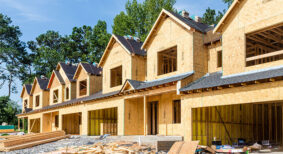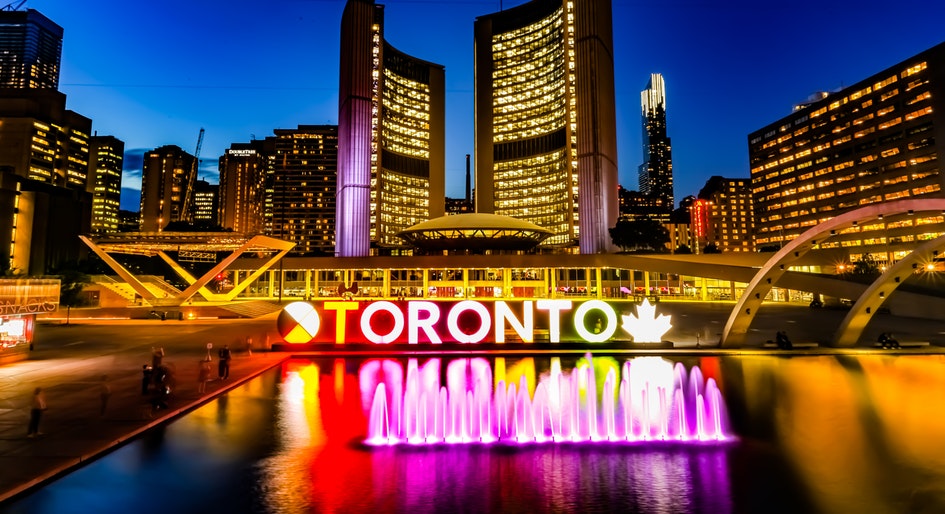Housing has been a dominant issue for Toronto’s mayoral candidates seeking election on June 26. From former MP and city councillor Olivia Chow to ex-police chief Mark Saunders, six prominent frontrunners gathered June 12th to reiterate their stances on housing-related challenges at a debate presented by the Urban Land Institute (ULI).
Moderated by Marivel Taruc, CBC journalist and TV host, the crux of the conversation centred on housing as a defining issue in both the ongoing election campaign – and for the incoming mayor who will play a pivotal role in aligning the city’s resources and programs with allies and government groups.
“One of the biggest issues right now is supply,” said Saunders. “The existing government sat on their hands and didn’t do anything, knowing the population is increasing rapidly [and] we are going to have 500,000 more people here in the years to come.”
While overall lack of housing supply was central to the discussion, student-focused housing, zoning and red tape, and the declining state of the city’s existing rental stock were all touched on by the candidates.
“I served on the Board of the United Way in Toronto, and when the vertical poverty report came out, it was definitely eye-opening to see the vulnerability and the risk in terms of keeping existing rental stock in good state of repair,” said Liberal MPP, Mitzie Hunter. “In my comprehensive plan for affordable housing, I want to protect those units from being sold and demolished, so we don’t lose that important rental stock.”
Hunter said that if elected, she would put $100 million toward the Multi-unit Acquisition Program to acquire and convert aging affordable rental units into non-profit land trusts or co-ops. The program, launched by the City in 2021, helps save apartment buildings and multi-tenant houses that are either vacant or at risk of being converted into more expensive properties.
Meanwhile, both Olivia Chow and Josh Matlow expressed concern over the growing trend of “renovictions,” with Matlow stating that “reform is needed to give tenants some protections when they are required to leave their homes.”
Below is a comparison of some of the housing policies and promises proposed by the six candidates who appeared in the June 12th debate:
Ana Bailão
“I’m running on a plan to build housing and make life more affordable. I believe there is nothing more important than affordable housing.”
- Establish an Anti-Displacement and Evictions Prevention Unit with 30 staff members.
- Temporarily freeze new proposals that would demolish rental buildings.
- Encourage densification by rezoning avenues to allow eight to 10 storey apartment buildings as-of-right (i.e., no need for special permit), legalize walk-up apartments on some transit routes and relax rules around shadows.
- Commit to ensuring 20 per cent of all new homes built by 2031 are purpose-built rental projects.
- Make additional surplus municipal properties available for non-profit and co-operative housing to build new affordable homes and speed up construction readiness for these projects.
- Lead an initiative on residential intensification to develop incentives and launch new policies to support the delivery of 285,000 new homes by 2031.
Brad Bradford
“We need more housing options, more supply, to address the range of need.”
- Increase housing supply by unlocking government-owned lands.
- Aim to deliver more “missing middle” and mid-rise developments.
- Streamline approvals and reduce delays by empowering the Development and Growth Division.
- Expedite the conversion of empty offices into homes by providing as-of-right approvals if the building isn’t expanding and so long as the new development includes 20% affordable housing.
Olivia Chow
“Affordable housing is defined as one third of your income, but this isn’t the case for many who live in Toronto.”
- Invest in a $100-million Secure Affordable Homes Fund, which would help finance the purchase, repair and transfer of affordable rental apartment buildings to not-for-profit, community, and Indigenous housing providers.
- Build 25,000 rent-controlled homes on city-owned land, with a minimum of 7,500 affordable units, including 2,500 rent-geared-to-income units.
- Double the reach of Toronto’s Rent Bank and nearly triple the reach of the Eviction Prevention in the Community program for those with complex needs.
- Strengthen the RentSafeTO program and scale up the Tenant Support Program.
- Establish a Toronto Renters Action Committee to work on anti-renoviction bylaws, advocate for rent control, and review existing policies and programs related to renters.
Mitzie Hunter
“The reality is this city has become unaffordable for so many. Housing is a human right, and we need to make sure people can afford to live here.”
- Increase eviction prevention services by expanding the Eviction Prevention in the Community (EPIC) Program and raising mental wellness by doubling support for street outreach services.
- Unlock public lands to create more new affordable housing.
- Speed up building approvals and construction.
- Amp up multiplex development and aim to add rental apartments on major streets and near campuses.
- Target homelessness by opening 24/7 warming and cooling centres and adding 400 new shelter beds.
- Increase housing stability by creating 2,000 new supportive homes with permanent funding for supportive services for residents.
- Establish five new Housing Outreach Program Collaboration (HOP-C) teams to support the mental wellness needs of marginalized youth for a total investment of $250,000 per team.
Mark Saunders
“The number one issue is supply and the growth in population. People want to come [to Toronto], but if there is no place to call home, we will fail.”
- Accelerate approvals by eliminating “silos” at city hall and digitizing more of the process.
- Work with local unions as well as the federal and provincial governments to encourage more people to join the skilled trades.
- Permit 1-2 more floors per rental or condo building, or up to 20 additional units where appropriate.
- Change the current requirements for the Housing Now program, which make it very difficult for builders to get financing to build affordable housing.
- Take the property tax off affordable housing units in future developments to help spur the rapid development of more homes.
- Press the federal government to waive the HST on all new large-scale purpose-built rental housing projects.
- Explore the possibility of tax and other incentives for purpose-built affordable rentals.
- Review Toronto’s development charge framework to ensure that monies collected are being directed toward their intended purpose. If they are not, look at reallocating some funds to community improvements in underserved areas.
Josh Matlow
“Too many people are relying on food banks. They can’t afford to make monthly rents and buy groceries.”
- Invest $300 million in Public Build Toronto, a new agency to develop housing on city-owned land like TTC parking lots; the agency would hire builders and partner with non-profits to offer a mix of deeply affordable, rent-geared-to-income and affordable homes, and market-rate units with rent control.
- Fast-track applications for affordable housing.
- Approve nine-storey buildings as-of-right on designated roads.
- Open doors to more affordable units by relooking some of the current rules.
- Support tenants by cracking down on “shady renovictions” and “bad landlords.”







